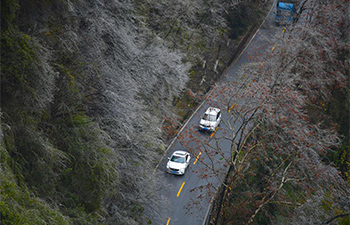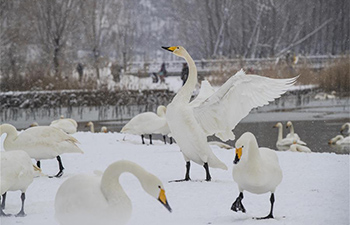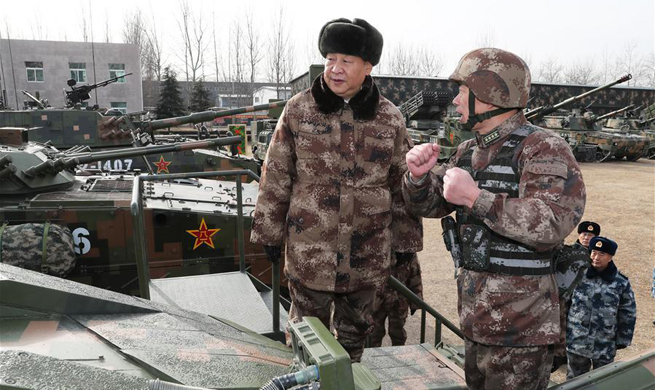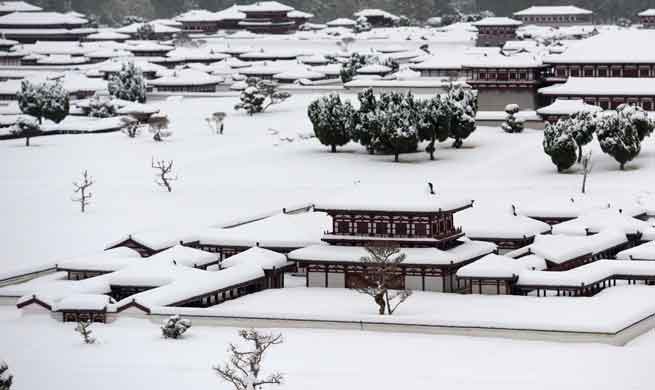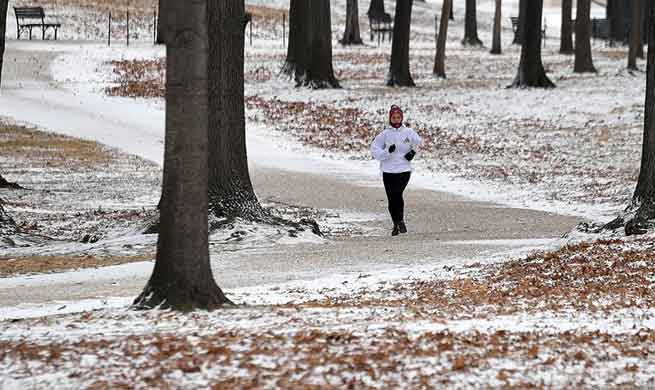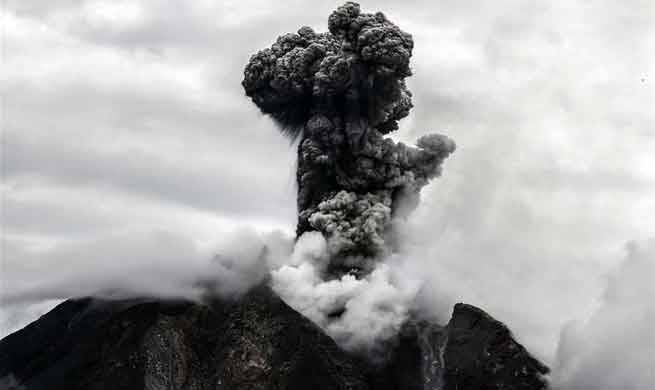by Xinhua writer Liu Chang
BEIJING, Jan. 5 (Xinhua) -- Recent developments on the Korean Peninsula have been both dramatically encouraging and long-expected as Pyongyang and Seoul have over the past days restored direct communication and agreed to hold official talks next week.
It was hard to anticipate such progress in this part of the world not long ago as the past year saw a highly tense and complicated situation on the peninsula.
Apart from several missile tests, the Democratic People's Republic of Korea (DPRK) conducted its sixth and most powerful nuclear test in September, triggering unprecedentedly strong condemnation by the international community and rounds of UN sanctions on its oil imports and textile exports.
The war of words between Washington and Pyongyang that lasted almost throughout last year has extremely unnerved the wider world while the real risk of a calamitous nuclear confrontation grew exponentially.
The DPRK and South Korea have chosen to pitch in and improve their long-paralyzed relationship by discussing Pyongyang's participation in the PyeongChang Olympic Winter Games. Such moves have other successful precedents in history. A table tennis diplomacy in the early 1970s helped pave the way for China and the United States to start normalizing their relations.
While the two Koreas are heading towards their formal talks next week, the most important thing is to ensure that this very chance they have jointly created for a possible peaceful future on the peninsula and the wider region would not be lost again. To do that, the two sides should start building trust towards each other.
The two countries need to know the value of bold and necessary compromise. For Pyongyang, it should pause its pursuit of nuclear ambitions and begin to join the rest of the world community in a peaceful process to denuclearize the peninsula. That is how the country can gain the trust of the world to ease the suffocating economic sanctions imposed on it.
South Korea should also help to dial down the highly-charged situation on the ground by suspending its military drills with its allies, notably the United States and Japan. The good news is that Washington and Seoul have agreed to halt war games during the PyeongChang Olympic Games. But the time frame should not be confined to that limit.
Also, as the peninsula stands at another key moment of choice, other countries concerned should do everything they can to cool down hostilities. They are also urged to extend their full support to make sure that the recent positive momentum can be turned into a long-term drive for lasting peace in the region.
As hope is rising once again over the peninsula, all parties are called upon to come together and embrace it. For once it is lost, it would be unclear when it could be rekindled. History knows that well and bitterly.




